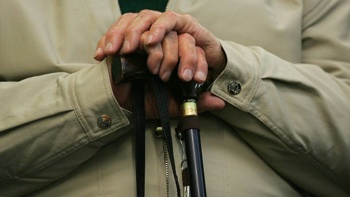There are 34 deaths, 17,148 Covid community cases and 842 people in hospital - with 26 in ICU - today.
Director of public health Dr Caroline McElnay said the spike in deaths was not unexpected and some of the 34 people had died over the past 10 days.
Some included cases where Covid was discovered after death.
Some deaths would not be caused by Covid-19, however many people with other conditions were dying from Covid, she said.
She said 27 of the 34 people who had died were aged over 70.
Thirty-four is a record daily number of deaths since the pandemic began. The previous highest death count was 24 on March 16.
In its 1pm statement, the Ministry of Health said, of the people whose deaths were reported today, that two were from Northland, 17 from the Auckland region, two from Waikato, one from the Bay of Plenty, one from the Lakes DHB, two from Hawke's Bay, five from the Wellington region, three from Canterbury, and one from Southern.
One person was in their 30s, one person was in their 50s, five were in their 60s, nine were in their 70s, seven in their 80s and 11 were in their 90s.
Seventeen were male and 17 were female.
Delays to the reporting of deaths can be associated with people dying with, rather than of Covid-19, and Covid being discovered after they have died, the MoH statement said.
McElnay said there was a sustained drop in case numbers.
The reduction in case numbers was most pronounced in Auckland. More than 4000 cases were reported there last Monday and about 2300 today.
While numbers overall were dropping, there were regional spikes.
Case numbers in Wellington were 1592 yesterday, compared with more than 2500 a week ago.
Canterbury and South Canterbury combined was a higher average than Auckland, and it had increased since last week.
Christchurch Hospital had 510 patients and 63 had Covid, McElnay said.
Hospitalisations were expected to increase there this week.
McElnay says the Auckland wave was down to similar levels seen in mid-February.
Outside Auckland, there was a less obvious decline.
However, case numbers were expected to continue to decline this week.
The rest of New Zealand was a couple of weeks behind Auckland.
McElnay called it a Mexican wave of cases.
Northern region hospitalisations followed a high-transmission model, but had started to come down, she said.
In Auckland, they were coming down slightly and rest of New Zealand was fairly static during the past week.
The next few weeks were expected to see those rates drop across New Zealand.
McElnay reiterated day zero is the first date of either symptoms or testing positive.
People needed to isolate for seven days and stay isolating until symptoms leave.
People did not need to return a negative test after their isolation period.
People did not need to do tests for 28 days after their isolation period, but did need to after that time period.
There were still over 1m people eligible who hadn't had their booster yet.
People were advised to wait for three months after an infection to get a booster, if they hadn't already had it.
People who got infected when they were double vaccinated got a further boost of immunity. If they waited three months after to get boosted they would be "super boosted".
McElnay was joined in today's media conference via Zoom by Dr Joe Bourne, who leads community care for the Ministry of Health.
Bourne said people travelling now needed plans in case they got Covid while away from home.
Meanwhile new figures highlight the impact of the outbreak on schools.
More than 200,000 children have been staying home from school every day this month during the Omicron surge.
Ministry of Education figures show more than 100,000 were learning from home on some days this month, while many others were sick with Covid-19.
The figures were reported to the Education Ministry by about 2200 schools, or 88 per cent.
A new report also shows the contact tracing wasn't up to scratch for the months of the Delta outbreak when daily case numbers were the highest.
If the performance targets had been met, it essentially means more people would have been isolating sooner - and the outbreak could have been more contained.
The key benchmark for public health teams is having 80 per cent of close contacts isolated within 48 hours of a positive case being notified in the system.
The latest report, covering October 18 to January 16, shows performance remaining between 70 and 80 per cent for several weeks until the start of December, including throughout the second Delta wave that peaked in mid-November with 222 cases a day.
The Government had abandoned elimination at this point, and was hoping contact tracing and surge vaccination efforts would keep Delta from exploding as it had in Sydney and Melbourne.
The 80 per cent benchmark was reached again only at the start of December, when daily case numbers dropped below 100 once more.
Take your Radio, Podcasts and Music with you









